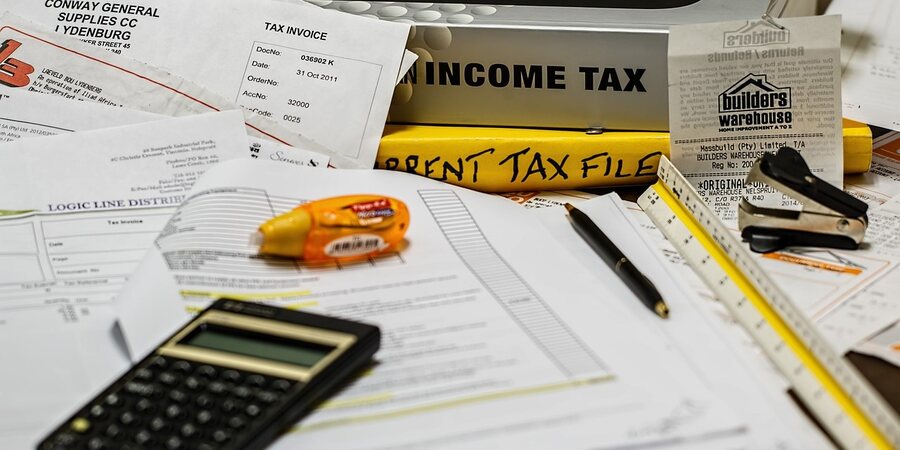Business travel expense deduction refers to the tax benefit that allows eligible businesses to deduct certain expenses related to business travel from their taxable income. These deductions help reduce the overall tax liability of the company, resulting in potential cost savings. However, it’s essential to understand the specific rules and requirements set forth by the tax authorities to ensure compliance and maximize the benefits of these deductions.
Regulations for corporate travel tax deductions
1. Eligible expenses
Businesses cannot get deductions on all types of travel expenses. Hence, one should be aware of the expenses that can be listed for the deduction. Some of the expenses include airfare and transportation costs along with the accommodation cost of the employee. Miscellaneous expenses include meal charges, internet bills, etc.
2. Travel destination
To qualify for a deduction, the primary purpose of the travel must be for business. When the trip includes both business and personal activities, only the expenses directly related to the business portion of the journey can be deducted. It is crucial to keep clear records and segregate business-related expenses from personal ones to claim the appropriate deduction.
3. Duration of travel
The duration of the business travel must be reasonable and necessary for conducting business activities. In general, overnight stays and trips that require spending a substantial amount of time away from the taxpayer’s regular place of business are considered eligible for deductions. Short-day trips without overnight stays may be more challenging to justify as business travel.
4. Record-keeping

Accurate and detailed record-keeping is essential for successfully claiming business travel expense deductions. The IRS requires supporting documentation to substantiate expenses, such as receipts, invoices, travel itineraries, and other relevant documents that demonstrate the business purpose of the trip and the expenses incurred. Proper record-keeping ensures that the deductions are well-documented and defensible in case of an audit.
5. Method of deduction
Businesses have the flexibility to choose between two methods for deducting travel expenses: the actual expense method or the per diem method. Under the actual expense method, businesses deduct the actual costs incurred during the trip, while the per diem method allows the use of standard daily rates established by the IRS. The per diem method simplifies record-keeping, but the actual expense method may be more advantageous for certain business travelers with higher expenses.
6. Travel for employees
The expense deduction is not only applicable to business owners but to employees as well. The only requirement of the deduction is that employees ensure to keep all the bills and invoices intact. They should provide the same while filling up the form. The listing of the expenses can include client meetings, training sessions, or any other business activity.
Suggested Read: Are Travel Expenses Tax Deductible Or Not?
7. Limitations and exclusions
While many business travel expenses are deductible, there are some limitations and exclusions to be aware of. For example, entertainment expenses, such as tickets to shows or sporting events, have specific rules for deduction. Additionally, expenses for travel involving a cruise ship may have limitations, and only specific portions of the trip may be eligible for deduction.
8. International travel
Deducting expenses for international business travel may introduce additional complexities. International travel involves considerations such as tax treaties between countries, currency conversion issues, and potential limitations on certain expenses. It’s essential to understand the specific rules and requirements for international travel deductions to ensure compliance and maximize available deductions.
9. Compliance with tax regulations
To benefit from business travel expense deductions, businesses must comply with all relevant tax regulations and guidelines. The IRS has specific rules and documentation requirements, and adherence to these guidelines is crucial for successfully claiming deductions. Seeking professional advice from tax experts or accountants can help businesses navigate the complexities of tax regulations and optimize their tax strategies to make the most of available deductions. Proper compliance ensures that businesses can reduce their tax liability while avoiding potential audits or penalties.
Business travel expense deductions can provide significant tax savings for eligible businesses, helping to offset the costs of essential travel for business purposes. By understanding the criteria for eligibility, maintaining proper records, and adhering to tax regulations, businesses can make the most of these deductions while minimizing the risk of potential audits or penalties. It’s essential for companies to stay informed about any changes in tax laws and to seek professional advice to optimize their tax strategies and take full advantage of available deductions.
Suggested Read: Car Allowance Policy: Meaning, Tax Implications, And Benefits
Business Travel Expenses Deduction FAQs
What is business travel expenses deduction?
Business travel expenses deduction is the way in which businesses can avoid paying taxes on the travel expenses.
Can businesses avail deductions on every kinds of travel expenses?
No, there are several rules and conditions in which businesses can opt for travel expenses deductions.
What qualifies as a business trip?
A business trip is a journey taken primarily for business purposes, such as attending conferences, meetings with clients, conducting market research, or any other activity directly related to the trade or profession of the individual or business .
Do I need to keep receipts for business travel expenses?
Yes, it is essential to keep detailed records and receipts for all business travel expenses you wish to deduct. Receipts serve as evidence for the expenses claimed and can be required during an audit or review by tax authorities.



